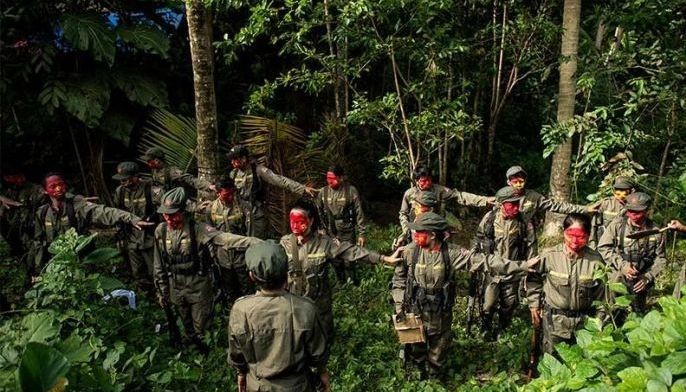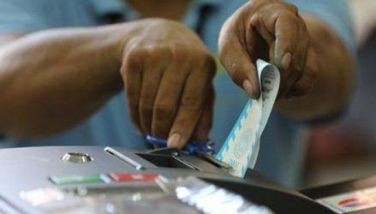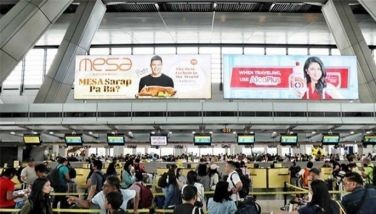'Number One' too: Palace says COVID-19 is top threat, not communists
MANILA, Philippines — Presidential spokesperson Harry Roque on Tuesday contradicted the chief executive, saying the top threat to the Philippines is the COVID-19 pandemic and not communist rebels.
"Although [the president] said [communists] are the 'Number One' [threat], of course COVID is still 'Number One' because all of the government's attention has been going to COVID," Roque said in Filipino during Tuesday's palace briefing.
The president's spokesperson walked back Duterte's comments, saying the chief executive actually meant that communists are the biggest threat to the country in terms of national defense and security.
President Rodrigo Duterte in his televised public address on Monday night said "terrorism is Number One in our list — actually the 'Number One' threat to the country." The address was part of a meeting by the inter-agency task force on the novel coronavirus.
"Not the Abu Sayyaf, not the terrorists of no value, but these high-value targets, the communists,” the president said in a mix of English and Filipino.
Duterte said that terrorists and the Communist Party of the Philippines —which has been fighting an ideology-based insurgency against the government since 1969 — are giving the government “no respite” despite the outbreak of the deadly coronavirus in the country.
“[The pandemic] has been taken advantage of by these forces arrayed against us — the Abu Sayyaf, who are terrorists with no ideology, the communist party, with ideology, but more pernicious in effect, which could undermine the peace and security of our country,” Duterte said.
He also warned communists: “I want to tell you, that I wish we do not reach the point where I have to—kill you.”
There is a pending plea before a Manila court to have the Communist Party of the Philippines and New People's Army officially declared a terrorist organization. The goverment has, despite the pendency of the petition, been referring to communist rebels as "communist terrorists" or "communist New People's Army terrorists".
The Duterte administration has been criticized for “railroading” the passage of the controversial anti-terror bill while tens of thousands of Filipinos contract the deadly coronavirus.
As of this writing, 31,825 Filipinos are sick with COVID-19 and 1,186 have died.
Anti-terrorism bill amid a health crisis
The anti-terrorism bill's timing was also called into question by Vice President Leni Robredo, who, on June 3, said the government should be "all hands on deck" in the fight against COVID-19.
The bill has been widely criticized for its vague definition of terrorism which many fear will lead to abuse on the executive branch's part.
There is also fear that red-tagging, a practice humanitarian groups have accused joint task forces between the police and military of carrying out against government critics, will become more prevalent once the bill turns into law.
The measure allows terrorism suspects to be held for 24 days before they must be presented before a judicial authority.
Under the existing Human Rights Act, authorities are supposed to bring a suspected terrorist before judge within three days of being detained.
Duterte on Monday night explained he still has not “received” the bill as his legal team is still in the process of reviewing it.
The Department of Justice, the President's Chief Legal Counsel Salvador Panelo, and the Integrated Bar of the Philippines have submitted their own recommendations on the bill.
The president is now waiting on the Office of the Executive Secretary to submit its recommendation.
Panelo dismissed the bill's critics in a statement, saying their fears were "more imagined than real."
However, the IBP urged the president to veto the bill — citing a potential constitutional violation of Section 29 or the provision on detention without judicial warrant of arrest.
The enrolled, or final, copy of the bill was transmitted to the Palace on June 9, effectively starting the 30-day window period for Duterte to act on the bill. Should he opt not to veto it, the anti-terror bill would automatically lapse into law on July 9. — with reports from Kristine Joy Patag
Related video:
- Latest
- Trending





























